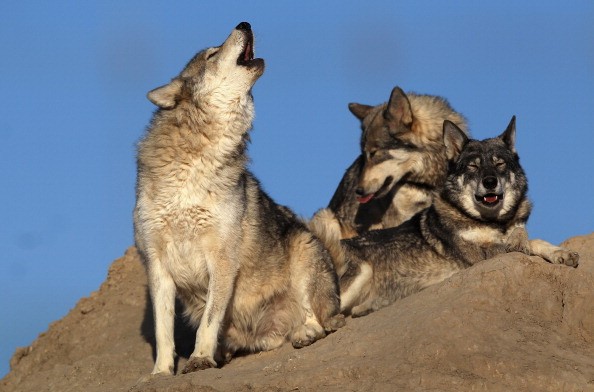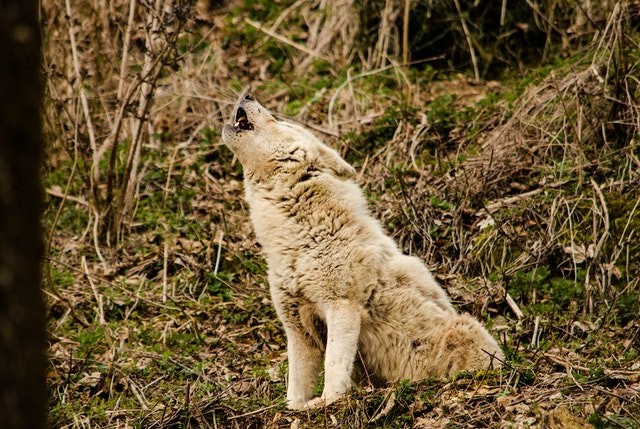Wolves howl for many similar reasons other species use vocalizations: to alert others about predators, to safeguard their territories, and to look for mates. Wolf pups start howling when they are as young as three to four weeks old, and as they get matured, they begin to learn to use their howls to coordinate with other pack members and learn what the group is supposed to be doing and to find young that separates from their parents.
These are the recognized reasons why wolves howl.

To Communicate Their Whereabout
The same as many other species of animals, wolves communicate through vocalizations. When wolves separate, they will howl to find their other pack members. Both individuals and whole packs may howl to locate a missing member. The vocalization is also commonly used to find missing pups or by the grown-ups to let the pups know that they are heading home from foraging.
To Safeguard Their Territory
Wolf howling between packs rises dramatically during their mating season. When hormones usually surge, wolves are more expected to exhibit combative behavior towards members of other packs so as to defend their territory and also the females in their pack.
They Miss Other Wolves
According to a study by an expert at the Wolf Science Centre in Austria, wolves are bound to howl more if they are away from another wolf that they are close to. Scientists had proposed in the past, that wolves howled as a stress comeback to being separated from pack members.
However, European scientists discovered that levels of a stress hormone known as cortisol did not remarkably rise in pack members when a wolf was separated from them. Rather, it appears that wolves howl when taken away from another wolf just to make contact with them and not due to the fact that their absence is stressful.
To Coordinate the Attack Plan of the Pack
Wolves usually do their hunting in packs, so it's crucial that every member is aware of what they should be doing at all times while the hunt is going on. Howling is one way to communicate about their plans and approach during a hunting session so that everyone will be carried along and no one will be left behind, so the hunt will be successful.

To Find a Mate
Wolves that are eligible must get a mate when the right time comes. In the weeks preceding the breeding season, wolves that are single will use howling to announce that they are in search of a mate.
By howling individually and not as part of the pack, a wolf can be identified by others as attractive, available, and also as the wolf that have an interest in breeding. Once wolves have paired, they will remain together until one of the members of the pair passes away, at that point, the surviving member will search for a new mating partner.
Related Article : Wolves Hunt Their Prey by Using Ambush Tactics
For more news, updates about wolves and similar topics don't forget to follow Nature World News!
© 2025 NatureWorldNews.com All rights reserved. Do not reproduce without permission.





